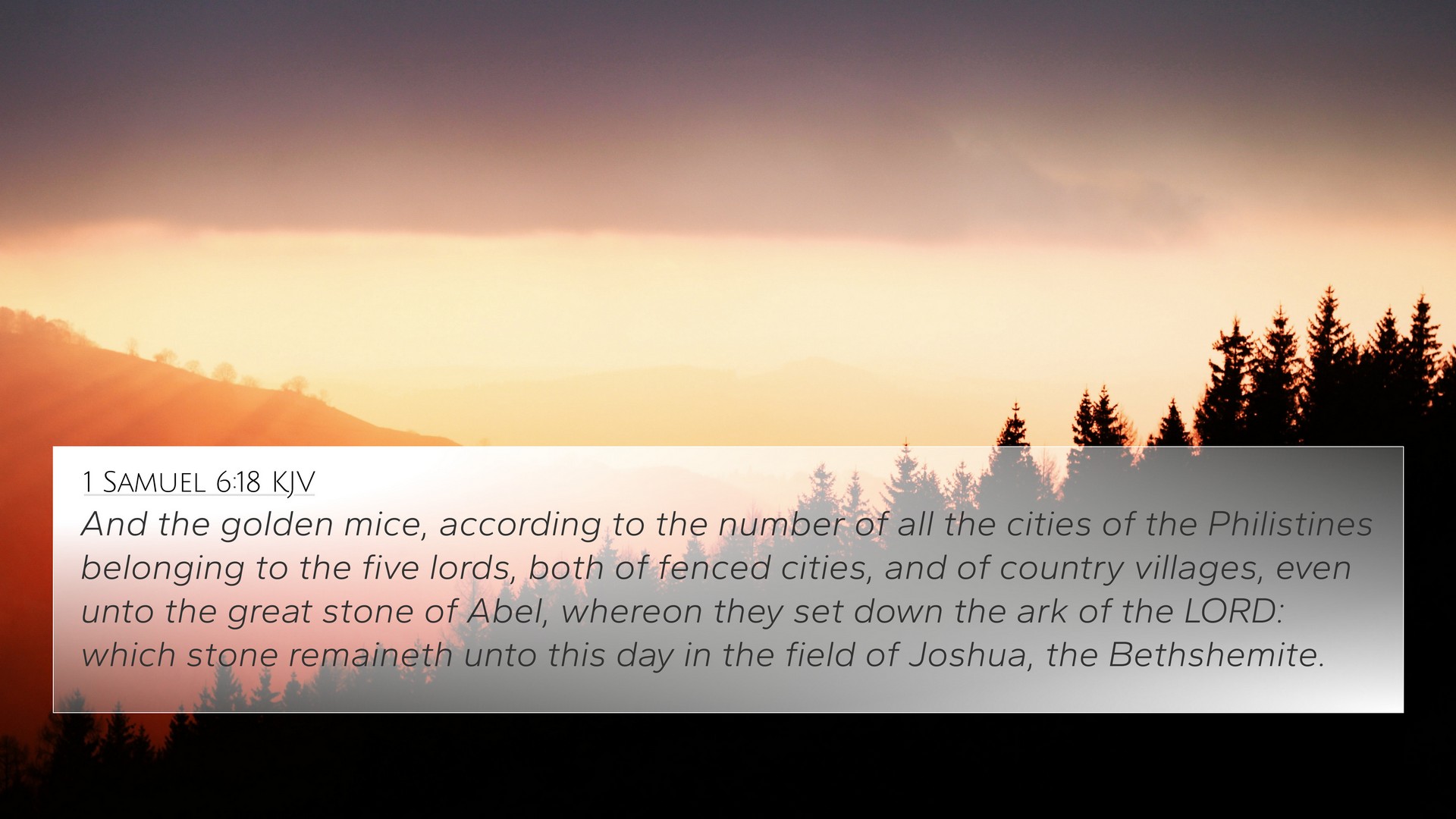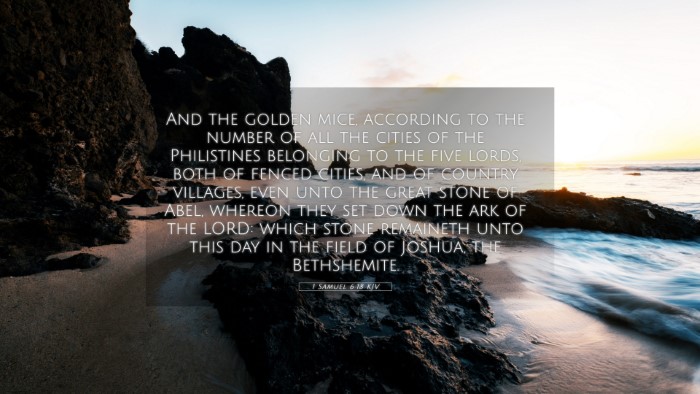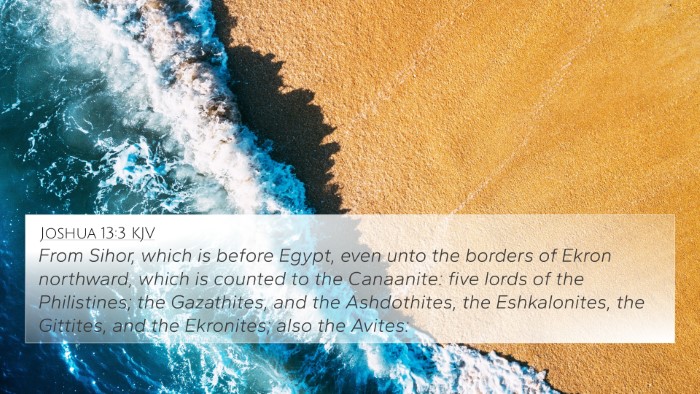Understanding 1 Samuel 6:18
Verse: "And the golden mice, according to the number of all the cities of the Philistines belonging to the five lords, both of fenced cities and of country villages, even unto the great stone of Abel, whereon they set down the ark of the Lord: which stone remaineth unto this day in the field of Joshua, the Bethshemite." (1 Samuel 6:18)
Overview
This verse details the offering made by the Philistines as part of their acknowledgment of the power of the God of Israel after being afflicted by plagues. It illustrates a moment of repentance and a recognition of divine authority.
Commentary Insights
This section combines insights from Matthew Henry, Albert Barnes, and Adam Clarke to provide an expansive understanding of the verse.
Matthew Henry's Commentary
Henry emphasizes the significance of the Philistines' offering of golden mice, suggesting that this act was both a token of their penance and an attempt to placate the God of Israel. He notes that the mice symbolized the plagues that plagued them, indicating their acknowledgment of the divine involvement in their suffering. Henry highlights how the offering showcases the mercy of God, as He desires repentance rather than mere sacrifice.
Albert Barnes' Insights
Barnes explains that the "great stone of Abel" mentioned in this verse served as a notable landmark, marking the place where the Ark of the Covenant was returned. This detail signifies the importance of location in biblical events and the very real historical context surrounding the Philistine's acknowledgment of their wrongdoing. Barnes also points out that the offering to God came as a direct response to the calamities they faced, illustrating a typical biblical pattern of turning to God in times of distress.
Adam Clarke's Perspective
Clarke provides a thorough examination of the terms and historical context within the verse. He notes the implications of the "five lords" of the Philistines and relates it to the sociopolitical structure of the time. Clarke also emphasizes that the setting down of the ark at the stone of Abel represented a moment of covenantal restoration, suggesting a deeper theological interpretation of how God interacts with nations and peoples.
Bible Verse Cross-References
Understanding 1 Samuel 6:18 is enhanced through various cross-references that highlight its connections to other Biblical texts:
- 1 Samuel 4:7-8: The fear of the Israelites’ God among the Philistines, indicating the power they recognized.
- 1 Samuel 5:6-12: Descriptions of the plagues that plagued the Philistines, leading to the desire to return the ark.
- Exodus 8:16-19: A parallel of how God dealt with Pharaoh, showcasing God's authority over nations.
- Jeremiah 44:28: A reminder of God's judgment on nations that turn from His ways.
- 2 Samuel 6:6-7: The divine consequences of mishandling holy items, reinforcing the sacredness of the Ark.
- Hebrews 9:4: The significance of the Ark within the New Covenant context, providing a bridge between old and new theologies.
- Romans 2:6-11: Paul's reflection on God’s impartial judgment, which resonates with the Philistines' situation.
Thematic Connections
The verse invites exploration of broader thematic connections in biblical texts:
- Divine Judgment and Mercy: The cyclical nature of God's judgment followed by mercy as seen in multiple accounts throughout scripture.
- Human Responses to Divine Authority: How nations and individuals respond when confronted with God's power, often turning in repentance from their ways.
- Historical Contextualization: The importance of understanding the context in which the events occurred, particularly in recognizing God’s sovereignty among nations.
Conclusion
1 Samuel 6:18 serves as a multifaceted verse that encapsulates themes of repentance, divine interaction, and the historical context of the Israelites and Philistines. Through cross-referencing, one can explore these themes in greater depth, revealing a rich tapestry of inter-Biblical dialogue that speaks to the relevance of these ancient narratives in modern faith practices.





